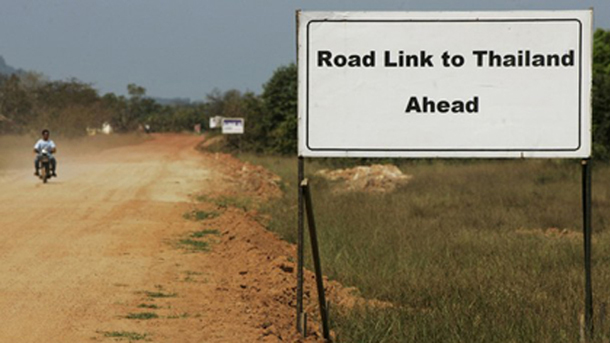Thailand’s largest construction company has asked the Karen National Union (KNU) to survey local people near the Dawei (Tavoy) industrial zone in southern Burma to determine appropriate rates of compensation for a road project.
Italian-Thai Development Co. Ltd. (ITD) made the request at a meeting between the two groups on Saturday.
Speaking to The Irrawaddy on Tuesday, Saw Tah Doh Moo, the secretary of the KNU environmental committee, said, “They told us to help them to negotiate with local people about the price of trees which were destroyed for the road project.
“Local people proposed one price in the past, but today they have proposed another higher price for compensation. We told [ITD] that we will help them with this matter,” he added.
The ITD delegation also showed how their environmental survey was developing. It is due to be concluded by the end of the year in order to get the green light from the KNU for the road project linking Dawei to Thailand.
“They could not show us all the information from their survey because they have not finished it yet,” said Saw Tah Doh Moo. “But currently they showed us some information and this is acceptable because they have followed what we told them to do.”
The KNU told ITD that it would only allow construction of a new road linking Burma’s Dawei Special Economic Zone (SEZ) to the Thai border to go ahead after an environmental impact assessment was carried out.
The rebels want ITD to demonstrate how much the road project, which passes through KNU-controlled territory, will affect the environment and local communities. The transport link is part of the multi-billion-dollar Dawei Development Project which aims to develop into a major shipping and manufacturing hub.
The KNU signed a ceasefire agreement with the Burmese government in January which presented ITD with an opportunity to cooperate with the ethnic armed group.
The Dawei project, intended to spur economic development of Burma’s sleepy rural southeast, appeared set for rapid advance but has stalled since January after the Burmese government blocked ITD’s plans for a massive 4,000-megawatt coal-fuelled power plant there on environment grounds.
In September last year, the KNU forced the company to stop work on the road after villagers voiced concerns that the project would have a negative impact on the environment and thousands of local people from more than 20 villages would be forcibly evicted from their homes.
Thailand plans to turn the Dawei deep-sea port into a massive industrial complex that will provide Burma’s more economically advanced neighbor with a ready supply of imported energy and a new conduit for its exports. The area will be administered as a SEZ under an agreement reached between Burma and Thailand in May 2008.
However, rights groups say the project, which is still in its early stages, has led to a government policy of land confiscations and the forced relocation of local people. Environmentalists have also been strongly opposed to the project which is expected to inflict major damage to the area’s pristine coastline.
ITD is Thailand’s largest construction company. The current Dawei project is eight times larger than the Map Ta Phut Industrial Zone in Rayong, Thailand, which is run by the same company.
Thai environmentalists from the Foundation for Ecological Recovery said that the Burmese may face similar issues to local people in Thailand who have contracted cancer from poisoned water as a result of the Map Ta Phut project.
Twelve people were killed and around 130 wounded from an explosion at Map Ta Phut during the weekend. Map Ta Phut is estimated to have cost some 370 billion baht (US $10.5 billion), while the Dawei project is estimated at around 303 billion baht ($8.6 billion), according to Thai environmentalists.

















